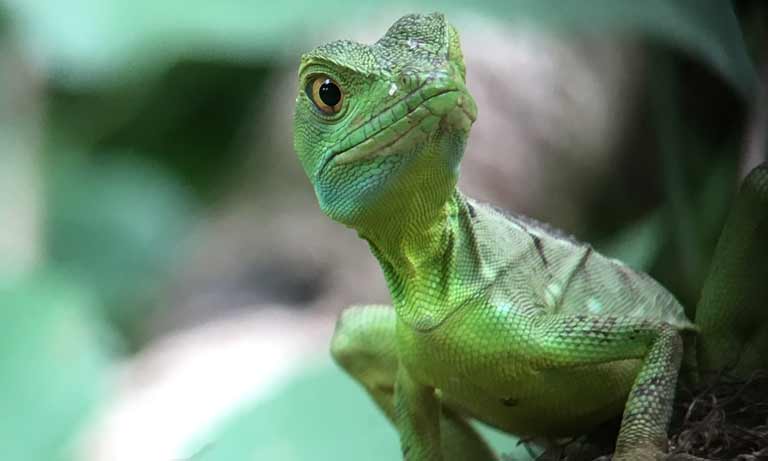Brucella canis: what vets need to know
14 Feb 2024
20 Feb 2023 | Sean Wensley
The welfare of non-traditional companion animals (NTCAs) has long been a concern for many vets. In this blog, BVA Past President and Chair of the Working Group Sean Wensley talks through BVA’s new NTCA policy position.

The welfare of non-traditional companion animals (NTCAs; also called ‘exotic pets’) is a recurring concern of veterinary professionals. Findings from BVA’s 2022 Voice of the Veterinary Profession survey, for example, revealed that over eight in ten vets were concerned that the welfare needs of NTCAs were not being met, while vets who treat NTCAs reported that over half of the NTCAs they see do not have their Five Welfare Needs met. BVA Council identified a number of priority welfare problems for NTCAs, including the welfare of animals killed for NTCA food and the wild-capture of animals for the pet trade, and updating BVA’s 2015 position on NTCAs was made a BVA priority for 2020/21.
BVA’s NTCA Working Group was convened in 2021, and after nearly 18 months an updated policy position on NTCAs was adopted by BVA Council in December 2022. The Working Group consulted and responded to a wide range of stakeholders, including industry and non-governmental organisations, and it benefited greatly from species-specialist representation from the British Small Animal Veterinary Association (BSAVA), British Veterinary Zoological Society (BVZS) and Fish Vet Society (FVS). The result is a comprehensive and wide-ranging position with 32 recommendations, in areas including regulation of the keeping and sale of NTCAs; online sales; rehoming of NTCAs; the Dangerous Wild Animals Act; responsible breeding; international trade; sustainability; animals bred for food of NTCAs; and veterinary under- and postgraduate training.
A widely agreed starting point for considering the welfare of NTCAs is that many have exacting husbandry requirements, and complex social, cognitive and nutritional needs, which can make them more challenging or inappropriate to keep as pets. Some species’ needs are so specialised, they can rarely be met in a domestic environment. The position emphasises the societal shift away from simply striving to prevent the worst of captive conditions for any kept animal, towards providing them with a Good Life. It notes, for example, the needs of intelligent, long-lived, socially complex animals like primates and parrots, for whom captivity can present serious welfare risks. The position highlights the welfare harms that can be caused by hand-rearing parrots, such as its association with abnormal sexual behaviour and resultant psychological and behavioural issues.
BVA’s updated position is clear in its view that regulation of the keeping and sale of NTCAs needs to be improved. Various potential regulatory approaches are laid out, and their pros and cons examined, including positive lists, negative lists and traffic light systems. The position recommends that a multi-tier licensing regime, or equivalent, should be developed. This recommendation resonates with the Scottish Animal Welfare Commission’s similar recent recommendation that a single list of permitted species of animal that may legally be kept as pets should be compiled. As the BVA position lays out, positive lists like this are currently employed in six European countries – Belgium, Luxembourg, Norway, The Netherlands, Malta and Croatia – and are supported by the Federation of Veterinarians of Europe.
For the first time, after several years of advocating pre-acquisition research before taking on a pet, the veterinary profession, through BVA’s position, is calling for mandatory pre-purchase knowledge testing, using proportionate, evidence-based tests, with a requirement for evidence of completion to be shown to the vendor at the point of sale. It highlights the recently launched Pet Know How initiative, developed by The Pet Charity, BSAVA, BVZS and the Companion Animal Sector Council, as an example of how such an approach could be supported.
The scientific assessment and acceptance of fish sentience has developed significantly since the publication of BVA’s previous NTCA statement, which was published jointly with BSAVA, BVZS and the Fish Veterinary Society (FVS) in 2015. With the support of FVS, that statement deliberately did not refer to fish, but the NTCA Working Group felt that would have been untenable in 2022. Issues such as the low-welfare shipping of fish by online retailers is therefore given attention, as is the matter of wild-capture of fish, to be kept as pets. The position calls for an ultimate move away from the wild-capture of fish, alongside the further development of high-welfare captive breeding programmes for those species of fish whose welfare needs can be met in the domestic environment. It similarly calls for an end to the import of wild-caught reptiles and amphibians for non-conservation reasons.
Having sat on the Working Groups for both the 2015 and 2022 NTCA positions, latterly as Chair, I have observed a further evolution by the veterinary profession towards advocating the ethical principles outlined in the 2022 policy; for example, that kept animals should experience a Good Life and that enhancing, protecting and securing the health and welfare of animals is the veterinary profession’s fundamental purpose. The profession, through the Working Group, BVA’s committees and BVA Council, is strongly supportive of the need for further regulation of the keeping of NTCAs, alongside a range of other measures. The Working Group is extremely grateful to everyone who gave their time and views.
Further ways in which we can all reduce our animal welfare footprint, and how vets and vet nurses are driving and supporting this, are championed in Sean’s book Through A Vet’s Eyes: How We Can All Choose a Better Life for Animals.
Get tailored news in your inbox and online, plus access to our journals, resources and support services, join the BVA.
Join Us Today